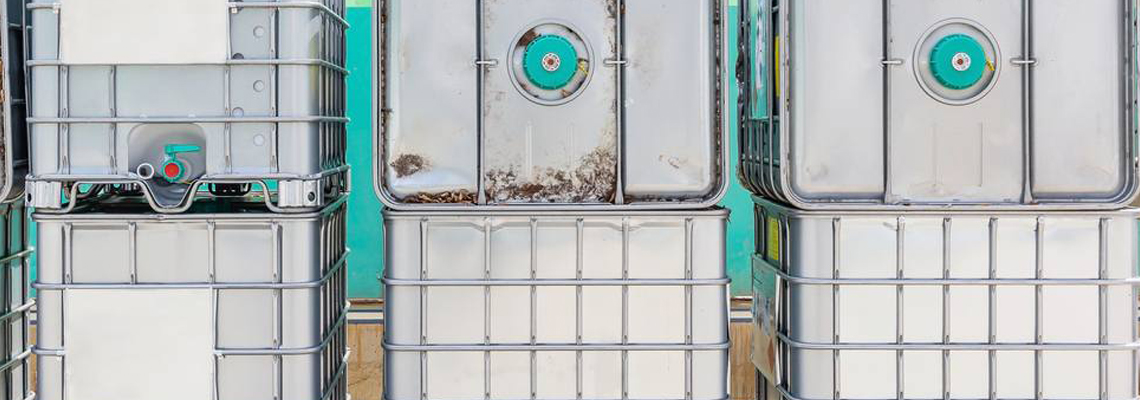Intermediate bulk containers (IBCs) have become a reliable means of holding, storing, and transporting large amounts of contents, such as solids, liquids, pastes, and semi-solids. Companies from such industries as pharmaceuticals, cosmetics, household chemicals, and food and beverage are growing dynamically, resulting in massive usage of IBCs. Fortunately, as online businesses dominate the digital wholesale and retail spaces, buyers can procure online IBC containers that are crafted by such vendors as IBC Greif. Click here for more details on IBC Greif’s IBC products. It is essential to note, however, that you will need the right information to purchase the right type, material, and size of an IBC container online. Here is what to know when buying an intermediate bulk container online.
Types of IBCs
There are two major categories of intermediate bulk containers. 1. Rigid Intermediate Bulk Containers (RIBCs) RIBCs refers to the type of IBCs that can be stacked and reused, with a structural design that allows for handling by a pallet jack or a forklift. They are designed to hold, store, and transit all types of liquids, including flammable liquids. RIBCs are typically made of either or a combination of metals and plastics. These containers come with a holding capacity of as low as 400 litres up to 3000 litres of any liquid. When buying your RIBC container, it is essential to consider the material and holding capacity suitable to your needs. 2. Flexible Intermediate Bulk Containers (FIBCs) FIBCs are used to hold, store, and transport solid, semi-solid, and liquid products, with a storage capacity of as low as 500kg to 1 tonne. They are typically made of plastic and metal, with such accompaniments as aluminium, wood, or folding plastic. Some of the FIBCs, such as the folding FIBC fold inwards when empty. These make them suitable for holding dry contents, including fertiliser, sand, and certain foods.
Popular IBC Brands
Just like any other product, some brands dominate the IBC manufacturing sector. When buying an IBC, you might want to consider the reputation of the various manufacturers. • Greif Incorporation Greif Inc. is one of the largest brand manufacturing and supplying IBCs across the globe. Greif is popular for its experience in the industry, with over 140 years of manufacturing IBCs. The company has up to 290 locations around the world in over 43 countries. Most of the customers to Greif’s IBCs are for chemical transit and storage. • Mauser Mauser was started in 1896 as a German company. Over the years, Mauser has gained popularity for its focus on sustainability in the manufacturing of IBCs. Their IBC products are durable and reusable, having passed rigorous tests on their reliability. Mauser will also collect any of their IBC products that are not in use, with an objective to reuse them or recycle parts in the manufacturing of a new product. • Schutz Schutz is another big player in the manufacturing of intermediate bulk containers. Their focus is on manufacturing IBC products that are ecologically efficient and reliable for use to their customers. As part of fulfilling their sustainability goals, Schultz features two classes of IBCs, including new containers and Recobulk. Companies can purchase new IBCs that have not yet been used before or the Recobulk class of IBCs that consists of recycled products.
Uses of Intermediate Bulk Containers
The use of an IBC container varies with different industries. • Food Industry. IBCs are used to store, hold, and transit such things as powdered, granulated, or liquid food ingredients. They can also hold various food syrups, such as corn syrup. Producers involved in the fermentation of wine or production of alcohol also use IBCs to hold the used products. • Industrial Sector. IBCs are used to hold raw materials that aid various industrial production processes. They are also used to transport these raw materials from one manufacturing plant to the other. • Construction Industry. IBCs are used in the storage and transportation of construction materials, such as paints, cement, and sand. • Other Industries. Companies from other industries use IBCs to hold chemicals, pharmaceutical products, solvents, cosmetic products, and other bulky items.
Materials Used to Manufacture IBCs
Depending on the type of IBC, and its capacity to hold more content the following materials are used; • Plastics • Galvanised iron or aluminium • Steel • Wood
